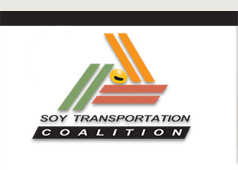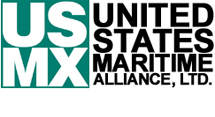 |
 |
|
| eNews • September 2012 | ||
| Promoting a Cost-Effective, Reliable and Competitive Transportation System |
||
 ILA-USMX talks to resume under federal mediation
ILA-USMX talks to resume under federal mediation
The stalled talks between the International Longshoremen's Association and their employers, represented by the United States Maritime Alliance, will resume their contract negotiations next week with a U.S. federal mediator presiding, according to an announcement.
"Upon the request of the Federal Mediation and Conciliation Service (FMCS), the parties have agreed to resume negotiations under our auspices during the week of September 17, 2012," said FMCS Director George H. Cohen in a statement.
The Federal Mediation and Conciliation Service is an independent U.S. government agency created in 1947 to operate as a conflict resolution buffer between contentious labor and management issues.
"Due to the sensitivity of this high profile dispute and consistent with the Agency's longstanding practice, we will not disclose either the location of the meeting or the content of the substantive negotiations that will take place," Cohen said.
The USMX rejected the demand issued by the longshoremen's union that represents a labor force at ports from Maine to Texas late last week to submit a "best and final offer" as work rules, wages and benefits have risen to the fore as the most contentious hurdles to getting a new master contract hammered out by the September 30 deadline in order to avert a possible waterfront labor strike.
"I'm not sure how the ILA can expect a final offer when we have been unable to engage in any comprehensive negotiations for a new contract, including economic issues," wrote James Capo, chairman of the United States Maritime Alliance in a letter and email sent to Harold Daggett, president of the International Longshoremen's Association, on August 31.
Capo was responding to a letter his group had received from Daggett dated August 30 that charged the USMX's latest position as "gutting wages and benefits."
Daggett's letter said ILA leadership had "formally requested that USMX provide them with their best and final offer so that the 200 ILA Wage Scale delegates can convene and take a vote on the proposal and also vote to recommend a strike."
"At this time, USMX does not believe it is in a position to present a final offer to the ILA for consideration by its Wage Scale Committee," wrote Capo to his counterpart.
Daggett said last week that ILA leadership was "encouraged by the agreements we achieved with USMX in July on the issues of automation and chassis work."
However, wages and benefits appear to have emerged as the central areas of contention as talks between the two sides broke off in late August.
Capo said his group is "referring to archaic work rules and manning practices, and the system of guarantees and overtime pay practices that result in millions of dollars being paid for time not worked. These inefficiencies are causing many of our ports to become prohibitively expensive, harming our competitive ability and threatening the long term viability of our operations."
Daggett said on Friday "USMX demanded that the ILA give up its eight-hour guarantee that many port areas of the ILA have had for years. USMX also demanded that the ILA radically change the hard-fought contractual rules for the payment of overtime. These were items that should not even have been part of the master contract discussions, but USMX insisted that talks could not continue unless we agreed to negotiate these items."
The National Retail Federation's president and chief executive officer, Michael Shay, said last week that without the "certainty" of a "secure, long-term" longshore labor contract, retailers and other shippers "will surely reevaluate their supply chains and the short-term and long-term reliance on these ports."
"Now that there is a real risk of disruption, most retailers using the East and Gulf Coast ports will be forced to executive contingency plans within the next week to meet in-store holiday deadlines," Shay said.
Source: Cargo Business Newswire
Soy Transportation Coalition |
|
